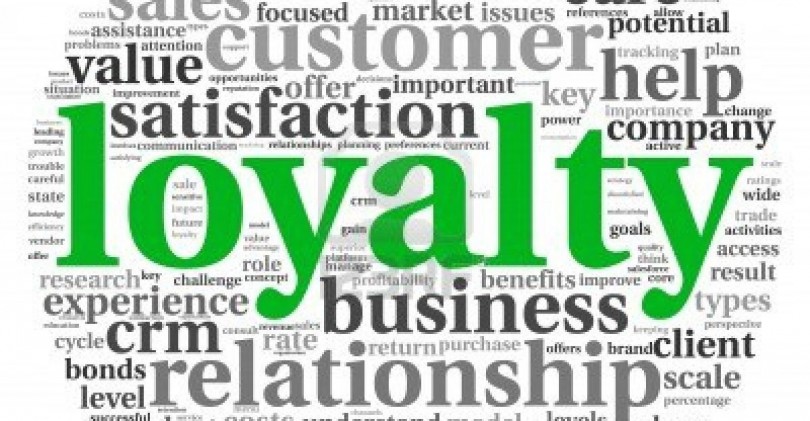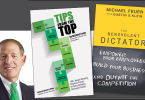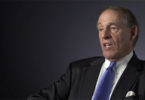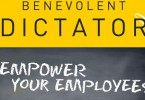COLLOQUY INTERVIEW
By Lisa Biank Fasig on March 30, 2015
If 35 years in business taught OfficeMax co-founder Michael Feuer one thing, it’s that loyalty can be found in obscure places. The former CEO author of the recently released book, “Tips from the Top,” shared a few key lessons in retaining loyalty. When he was the CEO of OfficeMax, Michael Feuer would occasionally get a late night call from an irate customer. Pretending he was the computer technician, he’d take the complaint. “Usually the customer was right,” Feuer recalled. So he’d get the problem fixed and the company would call the customer the next day to deliver the news. Often, the delighted customer would suggest giving the computer technician a raise.
The anecdote illuminates a key lesson through which Feuer (pronounced FOY-er) lives by: Sometimes the most disarmingly subtle benefits – like delivering on a promise – are the most effective.“I am a big fan of the obvious but sometimes the obvious is obscure, like a smile, or how about a thank you? Sometimes you should look at it from the ground up and ask: What can you do to build loyalty with that customer that maybe is so obvious you just don’t think of it?”.
Feuer, co-founder of OfficeMax and author of the recently released book, “Tips from the Top,” a compilation of 100 of his columns, talked about the key lessons in retaining loyalty learned over 35 years in business.
Question: What would you say is the single most important lesson learned over your 16 years as CEO of OfficeMax?
Feuer: No one wakes up in the morning and says, ‘I can’t wait to get out of bed, go to work and screw up.’ If something isn’t done correctly and effectively then the boss better look in the mirror, because perhaps he or she didn’t fully explain the objectives and what needed to be done correctly. Executives are very good at talking but not good at listening. There’s no magic bullet. Most of it is common sense applied through the virtue of experience.
Q: Tell me about MaxPerks rewards. What was key to the strategy?
Feuer: The reality, if you look at it from a practical standpoint, is any marketer needs the customer more than the customer needs the marketer. So therefore the key to any type of (strategy) such as MaxPerks or other incentive programs that are ubiquitous today is knowing how you can bond with your customers and give them a reason to want to do business with you. Look at it through the eyes of the customer, not the eyes of the seller and ask: What’s in it for the customer? I think lot of loyalty programs are launched and they don’t ask that question.
Q: So what made MaxPerks effective?
Feuer: Recognizing that, in office supplies we’re selling commodities. If everybody has the same product, be it Kleenex or toilet paper or water, how do you make your product stand out over your competitors’? One of the best perks of flying for me (is) I like to get on a plane first. That’s a tangible benefit. I can care less about the miles. So sometimes it’s the subtle aspects of a program that make it the best.
Q: What do you think are the biggest missteps among retail loyalty today?
Feuer: Most of the big missteps involve promising something you can’t deliver. Airlines for example – you get your rewards points and you can fly to the moon. It’s something that can’t be delivered. Consumers are very smart and they realize this is not a charitable thing; (companies) are doing it to enhance the relationship with the consumer and improve business. But if you have to jump through hoops to get it, you don’t need it.
Q: How did OfficeMax manage its staff to enhance customer loyalty?
Feuer: It goes back to some of the basics. We would tell the people managing these programs, ‘You don’t work for us, you work for the customer.’ You’re their advocate and your only objective is to solve whatever it is they want solved. Then you own them for life … You may have to give in a little bit on one thing but then you have a customer who is an advocate, and they tell one person how good you are rather than 20 people how bad you are.
Q: You dedicate a chapter of the book to communication. What are the three requirements to effective brand promotion?
Feuer: It’s the old who, what, why, where and when, meaning that people have a very difficult time being able to crystalize what they mean to say. It’s a matter of getting the facts out quickly, and people knowing what you want them to do. People talk too much about the bottom line.
Q: You also write about unlikely alliances. Can you provide some examples of atypical partners through which retail loyalty operators could align?
Feuer: Let’s say your selling an air freshener for a car. Why don’t you offer a discount on an oil change through a local lube stop? This is an automobile, so you can enhance your program through an ancillary benefit. You spend more time in the car so you buy more air fresheners. Or look at competitors. Say you have a common objective with a competitor to sell water on Sunday, assuming it’s not legal. You can form an alliance before city council. It’s the old story in life and business – keep your friends close and your enemies closer.
Q: You reference the risks of inertia in several columns. What tactics did OfficeMax use to support your vigil for constant improvement?
Feuer: The No. 1 job of a leader is to always look for ways of keeping the game fresh, and doing the same things but doing them better. One of the frustrations in life is (hearing) ‘We’ve always done it that way.’ If you’ve always done it that way then you’re not changing it and if you’re not changing it then someone in a garage will. If you’re not making change then you’re a victim of change. That’s with everything, from your incentive program to your product.
Q: What advice would you give a merchant wanting to build and retain customer loyalty today?
Feuer: This sounds really goofy but how about find ways to treat the customer the ways you want to be treated and look for simple things; low-hanging fruit. You don’t have to be a rocket scientist to do great things. Close the door, turn out the light and think. What is it our product, goods or service can do to better serve somebody?





